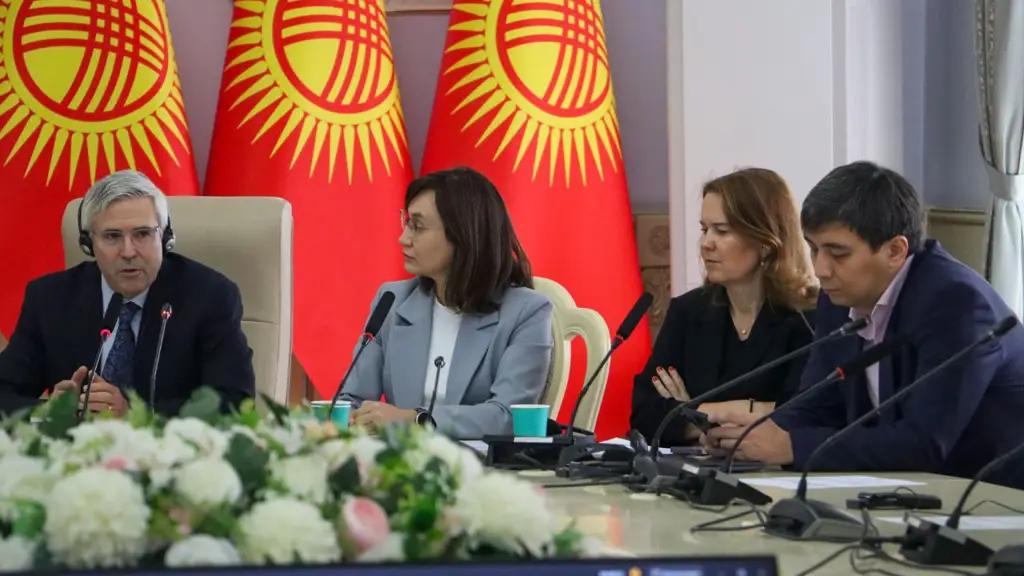
Published
06/14/2025, 09:01A project called “Community Initiative” has been launched in Kyrgyzstan to develop infrastructure in villages.
The project aims to develop climate-resilient rural infrastructure, create jobs, and expand economic opportunities, especially for women, youth, and vulnerable groups in seven regions of the country.
First Deputy Minister of Economy and Commerce Choro Seytov held a workshop with the participation of World Bank Senior Social Development Specialist Christopher Finch, ARIS Executive Director Mars Naspekov, as well as representatives of key government agencies and departments and heads of district state administrations.
The national seminar was dedicated to the launch of a community-driven national project (CDNP), a large-scale government program aimed at developing rural areas, creating jobs, and expanding economic opportunities in the regions of Kyrgyzstan.
The total budget for the project is $27 million, including: $25 million — an interest-free loan from the International Development Association (IDA) for a period of 50 years with a 10-year grace period; $2 million — a grant from the Early Learning Partnership (ELP) fund, financed by donors under the management of the World Bank.
The project aims to develop climate-resilient rural infrastructure, create jobs, and expand economic opportunities, especially for women, youth, and vulnerable groups in seven regions of the country.
Overall coordination of the project is being carried out by the Ministry of Economy and Development of the Kyrgyz Republic in cooperation with other government agencies. The project is being implemented by the Agency for Community Development and Investment (ACDI).
The project will cover 40 districts of Kyrgyzstan. In each district, one aiyl aimak will be selected and provided with up to $450,000 to implement social facilities such as kindergartens, schools, health facilities, as well as heating, electricity, water supply, and irrigation systems.
Selection criteria: high poverty level (maximum for the district); largest population; remoteness from the district center and minimum amount of equalization transfers from the republican budget.
The project pays special attention to social mobilization, ensuring the active participation of the population, especially women and youth, in the planning and implementation of initiatives.
Support will be provided in the form of grants for the implementation of investment sub-projects in line with the Regional Socio-Economic Development Programs (RSEDPs).
Based on the results of a competitive selection process based on the developed SERPs, 15–20 aiyl aimaks will receive additional grants ranging from $200,000 to $300,000 for the implementation of economic sub-projects.
The implementation of the NPIS is expected to result in the resolution of key socio-economic development challenges at the local level; expanded access to quality services (including the opening of private kindergartens); support for women's entrepreneurship and the development of women's leadership potential in communities.
A memorandum of cooperation between ARIS and the public association OSOP+1 was also signed during the event.
The project is being implemented with financial support from the World Bank. The coordinating body for the project is the interregional department of the Ministry of Economy and Commerce, and the implementing agency is the Agency for Community Development and Investment (ARIS).
